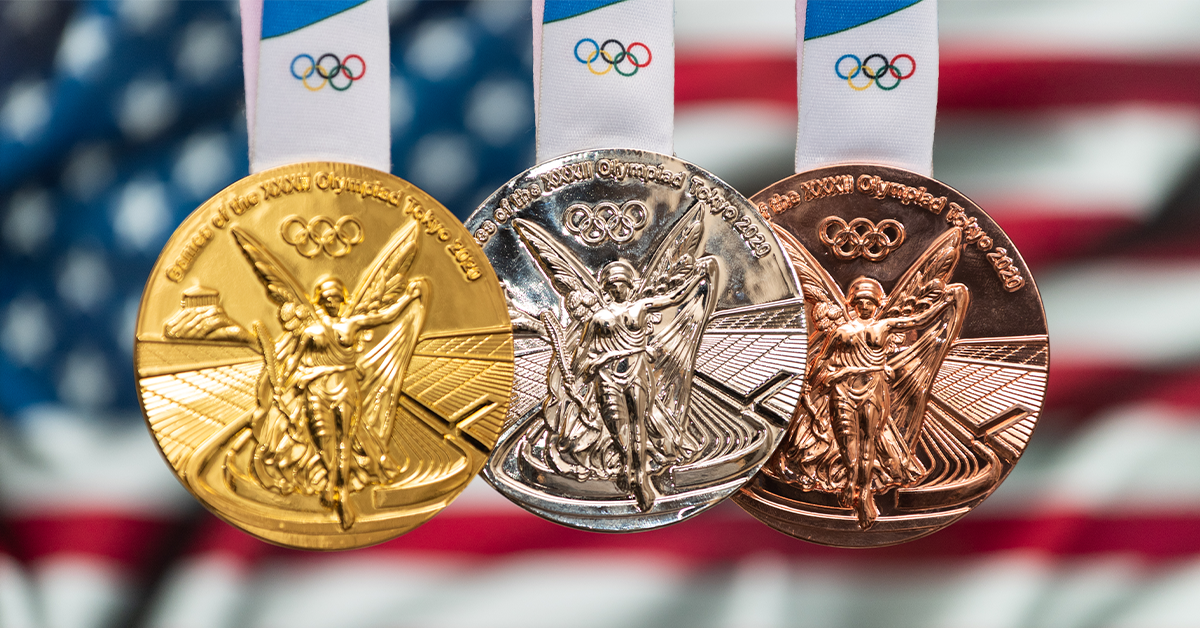
13 Sep Athletes, Mental Health, and the 2020 Olympics
For a variety of reasons, the 2020 Summer Olympics was vastly different from previous Olympic games. First, they were delayed by a year due to the COVID-19 pandemic, forcing many athletes to train for much longer periods of time than they could have imagined. They also took place amidst intense health and safety precautions, rising COVID cases in Tokyo, and restrictions that limited even the most timeless of Olympic traditions like medal presentations and the opening ceremonies.
Another element that made these Olympics extraordinary were the ongoing conversations about mental health. Before the Olympics had even begun, tennis superstar Naomi Osaka pulled out of several international tournaments, citing her mental health. Then, American gymnast Simone Biles chose to step back from the competition after developing the ‘twisties’, a dangerous condition in which a gymnast loses the connection between their brain and body, not allowing them to complete a trick.
The conversations that these actions sparked brought greater attention to mental health in athletics, with many people lauding the courage and bravery of these two young women who chose to use their public platform to bring increased awareness to this often taboo and stigmatized subject.
Mental health professionals can learn a great deal from these conversations, including how to improve mental and behavioral health treatment options for athletes.
What We Learned About Mental Health from the Olympic Athletes
The COVID-19 pandemic wasn’t the only driver of conversations about mental health at the Summer Olympic Games. Here are some key mental health challenges identified by athletes.
Troubled Coach-Athlete Relationships. Simone Biles is one of more than 150 women who were sexually abused by Larry Nassar, a USA Gymnastics team doctor who was put in a position of absolute trust over women and young girls for decades. This situation exemplifies the potential for damage that can be caused when a coach, doctor, or other trusted person abuses their influence over a young athlete.
In interviews after the Games, Biles said that she now believes that this situation could have influenced her decision to withdraw from the competition, citing certain mental health triggers that she still experiences.
The Burden of Expectations. With the intensity of the global spotlight on the Olympic Games, it’s no surprise that the burden of expectation can be extreme for many athletes. Research has found that up to 35% of elite athletes are affected by mental health disorders at some point in their career. Although there are a range of contributing factors including past trauma, injury, and competitive pressure, many of them stem from attempts to mitigate the stress of dealing with expectations.
Public Stigma. The pressure to perform isn’t just limited to their sport when it comes to Olympic athletes. There is an ongoing belief that athletes must be both physically and mentally fit, which has led to a public stigma around prioritizing or even discussing mental health in sports.
This negative perception of mental health has led many athletes to bottle up their feelings, which could lead to more dangerous coping behaviors down the road. One study found that 1 in 6 international athletes experienced suicidal ideation, and recommended allocating more resources towards suicide prevention in the future.
Best Practices for Behavioral Health Clinicians Who Treat Athletes
As a clinician, it’s easy to read these statistics and stories and feel frustrated. Fortunately, there are steps that behavioral and mental health professionals can take to improve clinical outcomes for athletes under their care.
Here are some suggestions for where to start.
Help them build mental health literacy into their physical practice. The reason why the ‘twisties’, or similar conditions like the yips are so dangerous is because they represent a significant disconnect between mind and body. Clinicians can help athletes in their care develop better mental health literacy and incorporate it into their physical practice, building a stronger bridge between mind and body. This may include everything from encouraging them to name personal symptoms of anxiety to teaching them to recognize common signs of depression.
Guide them through a framework to help manage psychological distress. Athletes who can develop self-management skills to help them handle psychological distress will be in a much better place to not only perform, but also to advocate for themselves in times of stress. Clinicians can help clients build this framework for themselves, and support them as they integrate it into their physical practice.
Provide comprehensive care. When they’re in training, many athletes are laser-focused on perfecting their sport, and everything they do serves this purpose. Behavioral health clinicians can make an impact on athletes in their care by focusing on their holistic needs, such as their mood, energy level, and emotions, not just the aspects of their life that are connected to their sport.
Use a behavioral health EHR to track both physical and mental symptoms. One tool that can help clinicians offer holistic mental healthcare to their clients is a behavioral health EHR. EHR technology can help clinicians track both mental and physical health symptoms, allowing them to offer more in-depth insights to their clients that can help them take back control of their mental health. Additionally, clinicians can set up treatment plans within their EHR, making it easier to monitor a client’s progress towards achieving their goals and objectives within their individualized plan.
As conversations around mental health and athletics continue, it offers more opportunities for clinicians to learn about the unique challenges faced by modern athletes. Through best practices, like the ones suggested above, clinicians can make a positive impact, helping their clients develop better habits and mental health literacy that will serve them throughout their careers, and for the rest of their lives.



Sorry, the comment form is closed at this time.